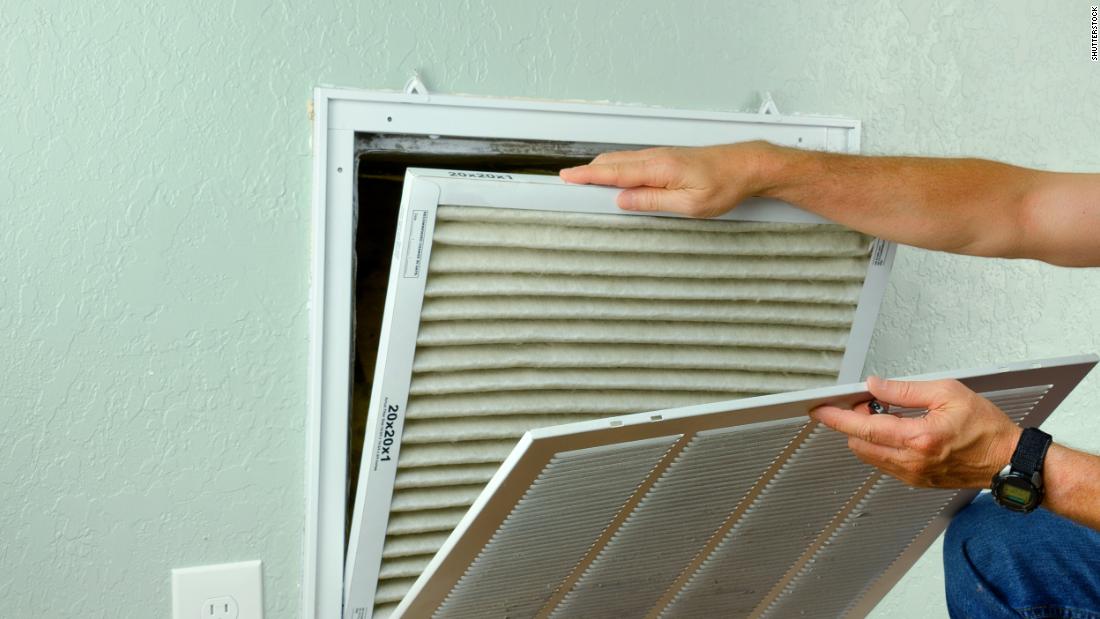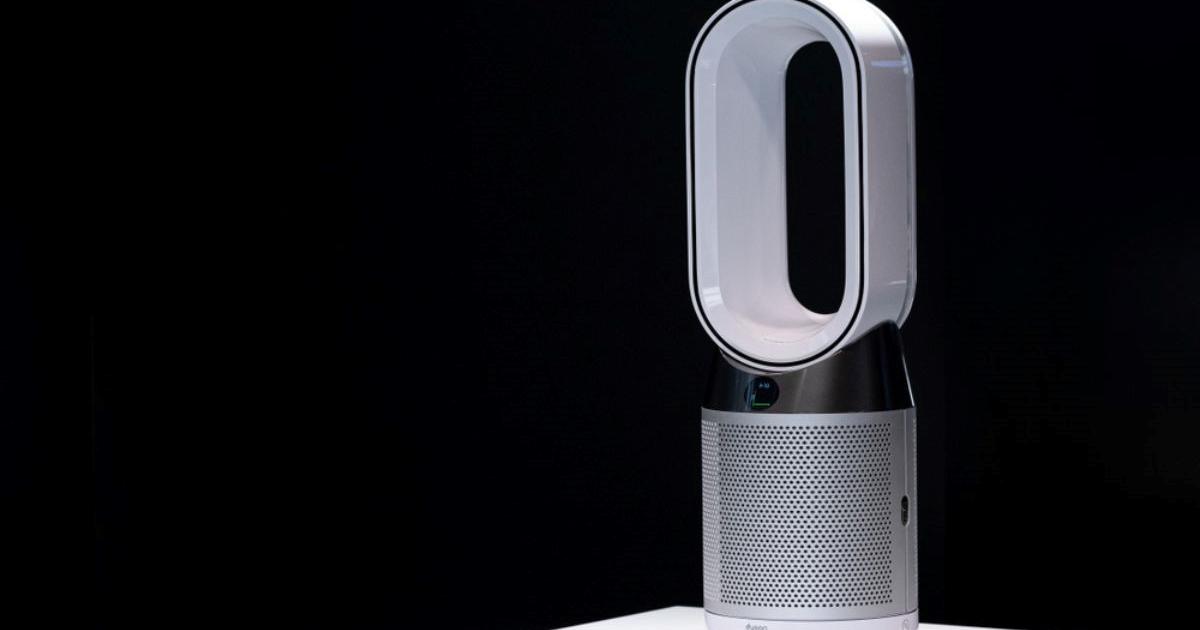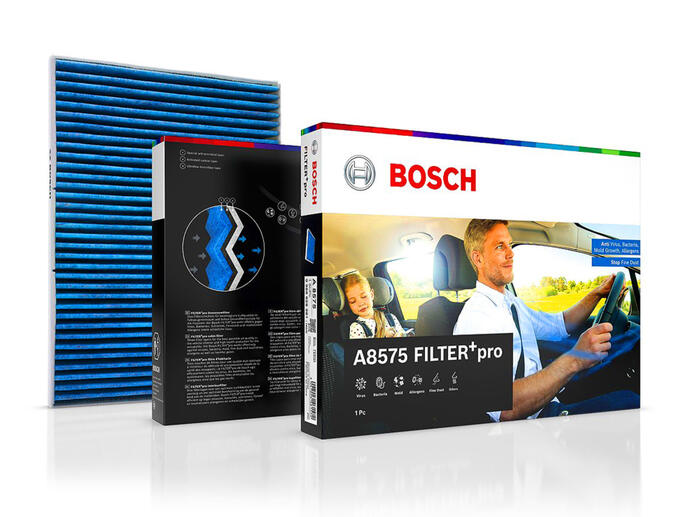Coronavirus is "serious global public health event", according to specialist 4:14
(CNN) - When New York Governor Andrew Cuomo announced last week that malls in that state couldn't reopen until they installed high-efficiency particulate air filters capable of trapping the new coronavirus, the researcher of Harvard Environmental Health, Joseph Gardner Allen, was delighted.
"I've been writing constantly, since the beginning of February, about how healthy buildings should be the first line of defense against the new coronavirus," said Allen, who heads the Healthy Buildings program at TH Harvard TH Chan School of Public Health.
"I am really thankful that we have a leader in the country, somewhere, who was finally talking about healthy buildings, ventilation and filtration," said Allen. "That has not happened before. It just hasn't happened. "
Buenos Aires: five figures left by quarantine 1:27A different priority
Allen was one of 241 scientists who wrote an open letter to the World Health Organization, the US Centers for Disease Control and Prevention (CDC), and other health agencies calling for a change in its guidance to the public on how the new coronavirus, or SARS-CoV-2, can spread.
The current guidance only focuses on "washing hands, maintaining physical distance and taking precautions against (the dispersion) of drops," said the letter, published Monday in the journal Clinical Infectious Diseases.
Health agencies are ignoring the tiny droplets of virus that are spit out and sprayed from our mouths, become aerosolized, and then float in the air, the scientists said, as a likely means of transmission.
"They don't want to talk about airborne transmission because that will make people scared," co-author Donald Milton, a professor of environmental health at the University of Maryland, told CNN in a previous interview.
"The best vaccine against fear is people's knowledge and empowerment to take care of themselves," said Milton. "The reason why it is important to wear a mask is because it blocks aerosols at their source, when it is easy to block them.
Because the CDC and WHO "have taken so long to recognize that aerosol transmission is occurring, buildings are not applying appropriate control measures," said Allen, who has focused his career on "sick buildings" and how affect the performance and productivity of workers.
“The prudent and pragmatic approach is to acknowledge that airborne transmission is occurring and put the controls in place. If we found out that in five years, that airborne transmission was 5% of the transmission, then that's fine, ”Allen said. "But what if it's 20% or 30% and we don't recognize it? That is a problem".
The CDC says that "covid-19 is believed to be spread mainly through close person-to-person contact," through "respiratory droplets produced when an infected person coughs, sneezes, or speaks."
"I subscribe to the CDC's view that the vast majority of transmissions occur within one to two meters of the infected person. That is the highway where all the traffic is, where the vast majority of this virus is transmitted, ”said infectious disease expert Dr. William Schaffner, professor of Preventive Medicine and Infectious Diseases at the University of Medicine School of Medicine. Vanderbilt in Nashville.
"Are there side streets where it can be sprayed and spread into the air? Yes, ”said Schaffner, adding that a significant transmission route is unlikely to be created. If future public health research finds that these "aerosol transmission events are more common than currently thought," that could change priorities.
"But I don't think we should change all air conditioning units in the United States and around the world based on street traffic," added Schaffner. "We want to attack the high traffic route with three large groups: masks, social distancing and avoiding large groups. Then we will reduce virus transmission. ”
Texas reports more than 7,000 new cases of covid-19 per day 2:05A role for aerosols?
A mid-March study found that SARS-CoV-2 can survive in microscopic respiratory droplets approximately 2.5 microns in diameter and smaller, which can remain in the air and be viable for up to three hours or more.
In early May, Allen and Linsey Marr of Harvard, a professor of Civil and Environmental Engineering at Virginia Tech, published an article that summarized research focused on the role of the smallest particles in the air in the spread of the new coronavirus.
“It is impossible for someone to release 'large drops' (> 5 microns) without also releasing the smallest ones. Therefore, the transmission that is supposed to occur through the spraying of large droplets from a cough could actually occur by inhaling much smaller droplets at close range, ”the article says.
Marr, who made an innovative discovery that the flu virus could float in the air in microscopic drops for an hour or more, likes to use cigarettes as a way to explain how viruses spread.
"The smallest microscopes we call aerosols behave like cigarette smoke. Therefore, they will be more concentrated closer to the smoker, the person who could be infected. As you walk away, your exposure will be much less, "said Marr.
Will the masks protect you from those floating microscopic drops? Top-notch N95 and surgical masks will, and scientists are struggling to study and fine-tune the effectiveness of homemade masks.
"For most fabric face masks, there is no internal filter layer to trap harmful particles," said Sara Greenstein, president and CEO of Lydall, one of the companies that signed with the United States Department of Defense. to produce filter media for N95 masks.
"Although wearing a cloth face mask is better than nothing, it is not a substitute for an N95 or surgical mask, which are engineered and highly technical products," said Greenstein.
Even when medical grade masks are widespread, highly effective filter ventilation systems are another key way to filter droplets from the air, Allen said.
- Coronavirus can float in midair, and experts say the WHO and CDC should tell people that.
MERV Ratings
In his edict to New York shopping mall owners, Cuomo was talking about HEPA filters, which have the highest MERV ratings, between 17 and 20.
What is MERV? It stands for "minimum efficiency report value," and that is how filters are rated for their ability to trap small particles. MERV ratings range from 1 to 20: Filters with higher MERV ratings are more effective than filters with lower ratings.
At the highest end, hospitals use HEPA filters to create sterile operating rooms and to control infectious diseases, and they can remove 99.97% of dust, pollen, mold, bacteria and other airborne particles with such a size small as 0.3 micron. For comparison, covid-19 is believed to range from 0.06 to 1.4 microns.
"Filters are rated worst performing, so 99.97% is the worst thing it will do," Allen said. "And that's rated for a 0.3 micron particle size, but smaller and larger actually works better. So the point is, it's capturing almost all of the particles. ”
Unfortunately, most businesses and homeowners may have a difficult time adapting their existing system to accommodate a HEPA filter or any filter higher than the system manufacturer's recommended rating.
Doing so can affect system performance - the smaller pores in HEPA air filters make it harder to push air. Using denser filters can affect the efficiency of the unit and force the fan, while decreasing indoor air quality, the opposite of what you want.
"HEPA filtration will not always be feasible or practical," Allen said. "But there are other filters that can do the job. What the standard configuration body for HVAC now recommends is a 13 ”MERV filter.
High efficiency filters in the 13-16 MERV range are often used in hospitals, nursing homes, research laboratories, and other places where filtration is important.
"If you are a home, building or mall owner, it would be desirable for someone to evaluate your system and install the highest MERV number filter that the system can reliably handle without dropping the volume of air passing through it," advised Erin Bromage, associate professor of biology at the University of Massachusetts Dartmouth.
"Also, virtually all modern air conditioning systems in commercial buildings have a process called make-up air where they bring air in from the outside and condition it and bring it in," said Bromage, a CNN contributor, who wrote a blog post, in early May - "The Risks - Know Them - Avoid Them" - which garnered more than 13 million views in one week.
Building owners should consider increasing the amount of make-up air that is introduced when opening dampers, Bromage suggested.
"It's worse when it comes to energy, but the more outside air we bring in, the more dilution of the virus we have and the safer it will be," Bromage said, adding that it is important to control humidity levels as well. "There is a kind of 'favorable conditions' zone for the coronavirus, between 40 and 60% humidity, where it doesn't survive long," Bromage said.
Below 40% humidity, he said, the infected droplets stay in the air longer, giving them the opportunity to travel further to infect people. Above 60%, the drop absorbs more moisture, becomes heavier and more vulnerable to gravity, "which sounds great," said Bromage.
"But it actually falls on surfaces much faster and being wet really keeps the virus alive and contagious longer."
What to do?
First, focus on following public health recommendations: wear face masks when you go out, stay away from large crowds, and keep a two-meter distance from anyone not in your "quarantine bubble," wash your hands with soap and water. Often keep your hands away from your face and try to go outdoors only with excellent circulation and air filtration.
If you have the resources, there are also personal HEPA air purifiers on the market, designed to clean a standard room in a home. Some even come with humidifiers that will measure the air and keep the room between 40% and 60%, while others incorporate UV light technology designed to kill stray particles.
"Properly balanced UV light will inactivate viruses and bacteria in the air, which simply adds an additional layer to the protection that comes from the air purifier," said Bromage.
Costs range from a few hundred to over $ 1,000, but don't be fooled by the price - you're looking for a machine with a HEPA filter designed for the size of your room, so measure it carefully. Having too small a machine in a large room will not clean the air, while having a large system in a small room is a waste of money.
Finally, be aware that HEPA filters can be expensive and will need frequent care to keep them at their best performance.
Many point to the cost of filters and the cost of modernizing buildings and say it may not be worth it. That is not always the case, Allen said.
"It is a mistake that healthy construction strategies and higher ventilation and filtration rates are expensive strategies," said Allen. “When people know and understand how it is transmitted, then they are empowered to make better decisions.
“And that includes just your home: they would have people nearby, they would open those windows; you're in your car with someone else, roll down the window a few inches, ”said Allen. “No single strategy is going to work. But if we put enough layers on top of each other, we can significantly reduce the risks. ”
coronaviruscovid-19












/cloudfront-eu-central-1.images.arcpublishing.com/prisa/KMEYMJKESBAZBE4MRBAM4TGHIQ.jpg)


